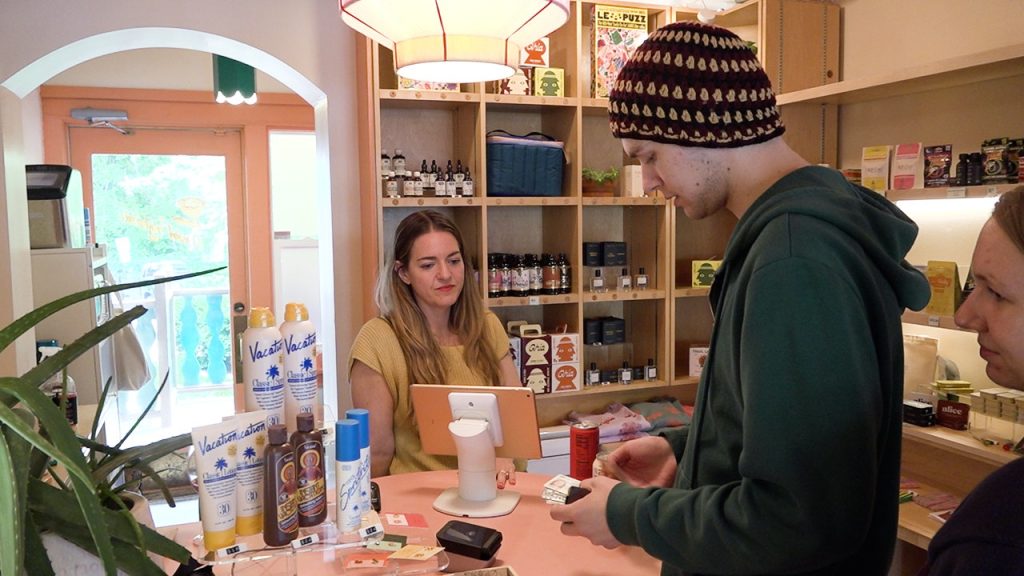The “sober curious” movement is gaining momentum as more people reconsider their relationship with alcohol, choosing to be more mindful of when they drink rather than imbibing out of habit. Non-alcoholic (NA) bottle shops are on the rise across the country, offering alternatives to traditional alcoholic beverages. Erin Flavin, the owner of two NA shops in Minneapolis-Saint Paul, realized she was drinking too much during the pandemic, prompting her to explore healthier options. Flavin offers a variety of products, including adaptogen drinks that support the body’s ability to deal with stress. A recent NCSolutions Consumer Sentiment Survey found that over 40% of Americans want to drink less this year, indicating a shift in drinking culture.
In states like North Dakota and Wisconsin, binge-drinking rates remain high, with over 25% of people reporting binge-drinking in the past month. Millennials like Kelsey Bank, who grew up in Wisconsin, are reevaluating their drinking habits in light of the sober curious movement. Bank, who previously engaged in weekend binge-drinking, has seen significant health improvements after committing to being sober curious, including weight loss and better blood pressure. As more people explore sobriety, the demand for non-alcoholic beverages is increasing, with the global market projected to grow substantially by 2028.
While the sober curious movement is making waves, alcohol misuse remains a prevalent issue, with alcohol being the most commonly treated substance use at facilities like Hazelden Betty Ford. Director of clinical services Lydia Burr emphasizes that there is no safe level of alcohol consumption, and substance use disorders can affect individuals of all ages and backgrounds. Despite the challenges of addressing mental health issues and substance use, Burr stresses that evidence-based practices and coping skills can help individuals manage these problems. Treatment options are available to meet individuals where they are at in their recovery journey.
The rise of non-alcoholic beverage shops and bars across the world has provided more options for those exploring sobriety or looking to drink less. Zero Proof Nation tracks these establishments to help people find NA options no matter where they are. Founder Laura Silverman, who has been sober for over a decade, created the site to fill a gap in the market for non-alcoholic options. She notes that NA drinks are not just for those who are fully sober, but also for individuals who are prioritizing their health, fitness, or professional responsibilities. NA beverages are becoming more widely accepted, allowing people to engage in American drinking culture without alcohol.
Silverman’s own experience of feeling like the odd one out when ordering non-alcoholic beverages at bars in her 20s inspired her to create a resource for others exploring sobriety. She encourages people to embrace their sober curiosity and explore the variety of NA beverages available. In a society where alcohol often plays a central role in social gatherings, NA options provide a way for individuals to participate while staying true to their wellness goals. As more people discover the benefits of non-alcoholic beverages, the stigma around sobriety continues to diminish, creating a more inclusive and diverse drinking culture.


